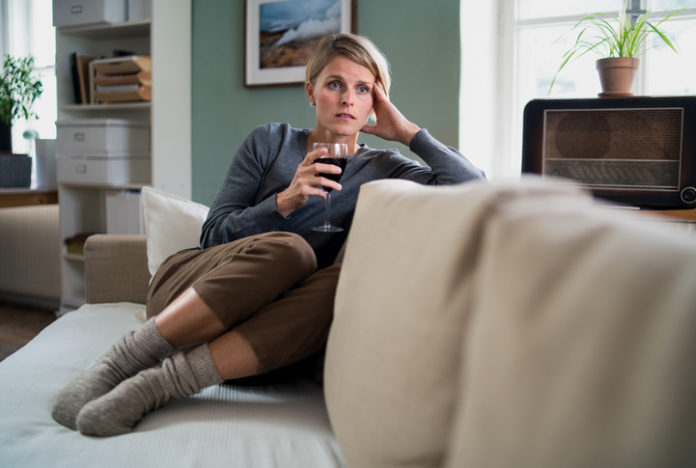“Stressed-out” women under 50 who work from home and live with children are the most likely to increase alcohol consumption in COVID-19 lockdown, according to new research from the University of Auckland.
“Our study found those who consumed more alcohol during lockdown were likely to continue post lockdown,” says lead author Dr Zaheer Hla.
Zaheer analysed the results from surveys completed by 37,206 adults across 38 countries, including New Zealand, Australia and the US, between 17 April and 25 June 2020 for the study, which has just been published in Frontiers in Psychiatry.
He looked at reports of alcohol purchases and use as well as other outcomes.
The study showed some people’s drinking increased (20.2%), some decreased (17.6%) and the remainder stayed at the same level.
The biggest self-reported drinkers were those who had stocked up on alcohol ahead of the lockdown.
The researchers found more than half of respondents (53.3%) were experiencing psychological distress during the early pandemic period.
Female gender, age under 50, higher educational attainment, living with children, working from home and psychological distress were all independently associated with increased alcohol use in lockdown.

The analysis concluded increased psychological distress in lockdown led to increased alcohol consumption, especially among women with children working from home during lockdown.
As New Zealanders prepare for periods of home isolation during the growing Omicron outbreak, Zaheer advises Kiwis not to stock up on alcohol.
“If you stock up, you feel like drinking more and if you have nothing to do, you will keep drinking. Rather than stocking up, it’s important to be aware of your mental wellbeing and choose more positive coping mechanisms, like exercise, a creative hobby or seeking out family and professional support,” he said.
“And it’s important to be aware of what help is available, such as helplines and mental health support, whether it’s on the phone or online.”
Another finding was people with a history of alcohol dependency were likely to relapse in lockdown.
Recommendations arising from the research include greater mental health support during lockdowns and screening for harmful alcohol use, along with ongoing support for alcohol addiction during and after lockdowns.
It could be useful to formulate policies around alcohol marketing and sales during the pandemic to limit harm, the paper concludes.
“Alcohol misuse also increases susceptibility to Covid-19 infection through changes in the respiratory system and impairing the body’s immune system,” Zaheer adds.
The Mental Health Foundation has a list of helplines.
Key helplines:
Need to talk? Free call or text 1737 any time for support from a trained counsellor.
Alcohol and Drug Helpline 0800 787 797 or online chat.
Lifeline 0800 543 354 (0800 LIFELINE).
Youthline 0800 376 633, free text 234 or email talk@youthline.co.nz or online chat.
Samaritans 0800 726 666.



